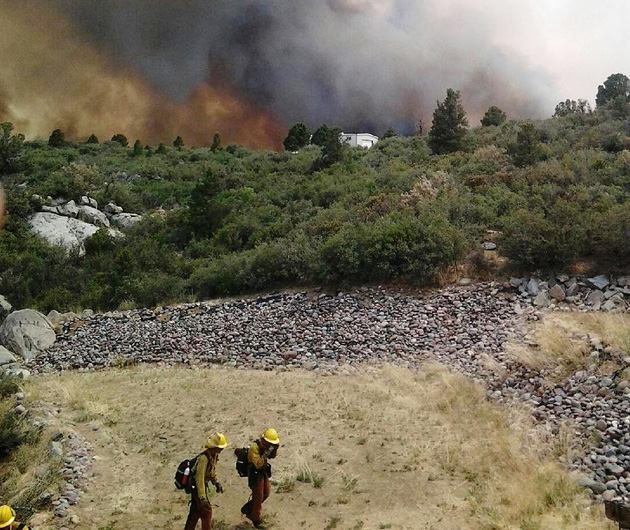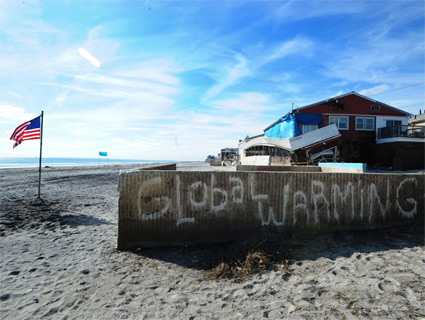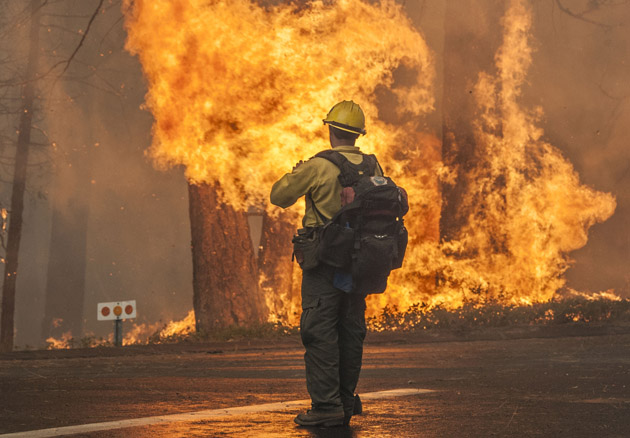This story first appeared in The Atlantic Cities and is reproduced here as part of the Climate Desk collaboration.
Eerie images of flooded, pitch-black lower Manhattan following Superstorm Sandy made it clear just how stark an effect climate change and extreme weather can have on our everyday access to electricity.
A report from the US Department of Energy released on last week shows that New York City and other coastal regions aren’t the only ones at risk. And it’s not just a question of the future. No American region, it turns out, has been exempt from the possibility of mass power outages. The report focuses on three major causes: rising temperatures; wider-spread, more severe droughts; and more devastating flooding, storms, and sea level rises.
DOE also created a map of energy and power-related disruptions over the past decade that experts have attributed to large-scale, long-term disruptions in climate and weather patterns (for the full, interactive map, click here).

Department of Energy
Several memorable mass power failures make the list, including Sandy, 2004’s Hurricane Jeanne, and this February’s major New England blizzard. The map also includes less-publicized and less obviously catastrophic events in which climate change had an impact on the US power grid. For example, drought conditions and low water levels on the Mississippi River last summer made it difficult for barges to transport resources like coal and petroleum. On the other end of the spectrum, flooding of the Yellowstone River in Montana ripped open an oil pipeline in July 2011, causing $135 million in property damages.
Droughts and extreme heat have made it more difficult for power plants to do their job. Storms and rising sea levels put the physical power grid, including power plants and individual power lines, at risk in places ranging from coastal communities to Tornado Alley. And, to make it all worse, rising temperatures will continue to put an ever-increasing strain on electricity resources.
As part of the climate change initiative launched in June by President Obama, the report offers several recommendations to help mitigate these trends. Long-term suggestions include new technologies to make power plants more efficient, increased emergency back-up systems for local power grids, and strategies to reduce the amount of energy consumers need.
In the meantime, it’s clear that inland communities have as much to worry about in terms of climate change as the coasts.
















